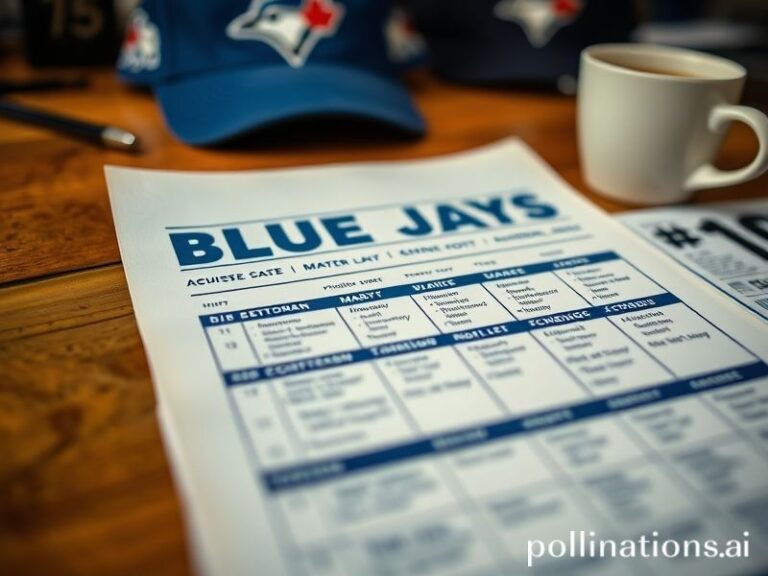Tommy Fury: The Global Export of Almost-Fame From Manchester to the Metaverse
From Riyadh to Reno, the name Tommy Fury is currently being spoken in the same fevered breath normally reserved for oil prices, TikTok bans, and whichever Kardashian has most recently filed for divorce. To the uninitiated, he’s a 24-year-old British light-heavyweight who has never fought a top-ten contender. To the rest of us—sipping lukewarm coffee in distant newsrooms from Lagos to Lima—he is a perfect, if slightly bruised, allegory for the age: famous for being almost famous, rich for being almost good, and watched by millions who secretly hope he’ll lose so they can tweet about it.
Tommy’s upcoming bout with KSI on 14 October in Manchester isn’t merely a boxing match; it’s a geopolitical pop-up shop. The fight will stream on DAZN in 190 countries, which means a yak herder in Ulaanbaatar can legally watch two British lads slap the influencer out of each other for £19.99. Promoters call it “cross-platform convergence.” Everyone else calls it “late-stage capitalism in satin shorts.” The undercard features two ex-Bachelor contestants, a crypto-millionaire who’s being sued in four jurisdictions, and a TikTok chef whose signature move is salting steaks shirtless. If that lineup doesn’t make you miss the Cold War, nothing will.
Fury’s résumé is a masterpiece of selective curation. Eight wins, zero losses, four of them against opponents whose combined record resembles a grocery receipt from 1987. Yet his passport has more stamps than a philatelist’s fever dream: fights in Dubai (for the oil-rich who like blood with their brunch), Tampa (for the crypto-rich who like blood with their NFT auctions), and Diriyah (for the Saudi-rich who like blood with their Vision 2030 soft-power makeover). Each venue is less a sporting arena than a pop-up billboard for whichever authoritarian regime needs better PR this quarter. The Saudis, ever the gracious hosts, reportedly paid Fury seven figures to spar for four rounds in December; the man earned more per minute than the annual GDP per capita of neighboring Yemen. Somewhere, irony just booked a ringside seat.
Globally, Tommy matters because he is a walking, flexing data point in the great flattening of culture. In the 1990s you needed a world title to sell pay-per-views; now you merely need a surname borrowed from a 1970s American heavyweight and a girlfriend with 14 million Instagram followers. Brands have noticed. Tommy’s latest pre-fight press conference was sponsored by a hydration drink that tastes like melted Jolly Ranchers and a cryptocurrency that lost 38 percent of its value during the forty-minute Q&A. When asked about inflation’s impact on ticket sales, Fury replied, “I just punch people, mate,” thereby delivering the most honest economic analysis heard all year.
Meanwhile, the British government—fresh from deporting asylum seekers to Rwanda—has cheerfully issued fast-track athlete visas to Fury’s entire entourage, including a hairdresser whose sole job is to maintain the boxer’s low taper fade at all times. Priorities, after all, are priorities. Across the Channel, the French sports minister sniffed that the bout is “un spectacle de l’absurde,” which is rich coming from the nation that gave the world Johnny Hallyday and the Maginot Line.
Come fight night, the global audience will be divided into three camps: boxing purists mourning the death of the sweet science, Gen-Zers screenshotting every clinch for meme fodder, and middle-aged dads who still think “Fury” refers to Tyson. The result—whichever way the judges lean after their obligatory consultation with the broadcast director—will be instantly irrelevant, immediately monetized, and permanently GIF’d. Within 48 hours Tommy will be hawking NFT mouthguards on a podcast with Logan Paul, and the cycle will reset.
In the end, Tommy Fury is not just a boxer; he is an export commodity, like crude oil or Brazilian soy, packaged prettier and with better abs. He sells the illusion that merit still matters while proving, round by profitable round, that it decidedly doesn’t. And that, dear reader, is the most heavyweight truth of all.







